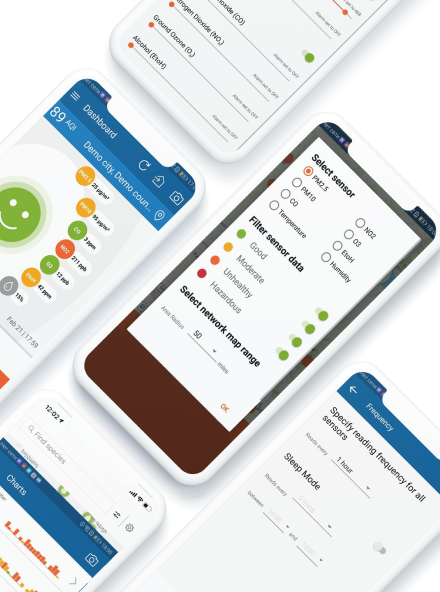
Why Choose .NET for Your Next Project?
10 Jun 2024

According to a 2023 Stack Overflow survey, .NET ranked as the most popular framework among developers worldwide. Being a versatile, open source platform created by Microsoft, it provides diverse tools, libraries, and a runtime environment for building a variety of applications, including web, desktop, mobile, cloud, gaming, IoT, and microservices. The popularity of this platform among developers and business owners alike is rooted in its versatility and wide range of use.
.NET supports many programming languages such as C#, F#, VB.NET, as well as C++, Python, and many more. C# is by far the most common language used for .NET development.
Now you may think: “Okay, this is what .NET is in technical terms, but what are its actual, tangible benefits from the business point of view? How is it better than other frameworks for my project? How do I know it is the right technology for my software development?”
We know how difficult the selection of technologies can be for a software development project. Let’s make things clear right off the bat - we are not here to say that .NET is or can be the right choice for any software project. To answer the questions above, we will delve deep into the benefits that .NET offers and offer instances where it can be the right choice, thus giving you space to ponder over and understand if this framework is what you’ve been looking for.
What are the Benefits of .NET Development?
There are multiple benefits that .NET development brings to the table for businesses of different size and scale. We have singled out the main ones to help you make more informed decisions in your software development journey.
1. Flexibility
.NET can be used with over 20 languages, other than the main ones which we have already mentioned above. This means that you can hire or outsource your custom .NET software development projects to development teams with a variety of coding skills.
This framework comes with modular architecture which allows engineers to include only the necessary components, without compromising performance, all the while reducing the software’s footprint.
Another important point to be highlighted here is the compatibility of .NET with legacy systems. It’s no news that many businesses, especially large enterprises, heavily rely on legacy software which can increasingly complicate innovation and digitization processes. This is where .NET can come to rescue. It provides compatibility with existing .NET applications, thus simplifying the migration and updating of older systems with minimum need for rewriting.
2. Ease of Use and Simplicity
The easier a technology is to use for your tech team, the faster you will have your project done, saving time and resources. With its intuitive framework, comprehensive libraries, code reusability, and extensive documentation, .NET can increasingly simplify and speed up the work of your software engineers. There is no steep learning curve and developers can easily pick up the ins and outs of the framework. Thanks to the multiple libraries, the need for components to be built from scratch is reduced to a minimum.
The extensive documentation and community support of the framework help in solving issues and bugs quickly and more efficiently. Besides, runtime errors are also reduced thanks to the strong typing and compilation of .NET, which also account for a smoother and more predictable development process. Predictability is especially important for businesses who want to have all their project phases clearly planned and expectations met in a timely manner.

3. Cross-Platform Compatibility
.NET is known as one of the most versatile frameworks out there. As already noted above, it can be used for the development of different applications, be it an enterprise-level web app, API, a mobile app, or cloud-based microservices. One of the most useful features of .NET is the fact that it allows engineers to leverage a single codebase across different platforms, including Windows, macOS, Linux, and web browsers. Thanks to its cross-platform compatibility, your software project development can be done within a much shorter period of time and at comparably lower costs. Things work out this way because developers are able to reuse code with very few modifications.
4. Security and Reliability
Security should be an integral part of your software development project, of its each phase. You should ensure the implementation of security measures even before you kickstart the project. If you are planning to outsource software development, ensure you have a reliable partner who has all the right security measures in place. .NET is also a building block for robust security throughout your software development lifecycle and beyond.
With features, such as role-based control, data encryption, and safe coding practices, it ensures security every step of the way. Add to that the robust garbage collection mechanism of this framework which allows the automatic management of memory allocation and deallocation. The latter prevents memory leaks and enhances the stability of your software solution.
Besides, Microsoft ensures to deliver regular security updates for .NET to strengthen its security further. This fact alone makes the framework a reliable tool for both developers and businesses worldwide.
5. Supported by Microsoft
On a similar note, .NET being supported and backed by a tech giant also explains its popularity and justified reliability. Aside from the fact that the company ensures that .NET is secure and up-to-date with the latest technology trends, it also provides a rich ecosystem of tools, libraries, and integrations.
Additionally, the extensive suite of software solutions of Microsoft, such as Windows, Office, and Azure, are all built to integrate and work well with .NET. So, if you are already using any of these Microsoft products, choosing .NET will highly simplify your software project development process. Besides, Microsoft also ensures that .NET evolves in sync with the innovations of our time, such as cloud computing, machine learning, and IoT.
Many large businesses and enterprises prefer to invest in technologies supported by major players in the tech industry because they offer professional support, long-term stability, and the guarantee that the technology will be maintained and developed further over time.
6. Object-Oriented and Open-Source
Thanks to being object-oriented, .NET allows developers to break down complex software into manageable and reusable pieces or objects. Such modularity makes code easier to understand, maintain, and debug. .NET’s object-oriented design also enhances scalability of applications by enabling the addition of objects and classes with minimum changes to the code.
As we may have already mentioned, .NET is open-source which comes with lots of benefits. First of all, it ensures transparency and full visibility into the codebase. Secondly, it encourages strong community ties by uniting .NET developers from around the world to contribute to the framework. And lastly, it leads to faster bug detection, development of new features, and improvement of the software in general. Having a strong community behind a software technology will only improve your software project development process, making it faster and more reliable. Besides, it means there is enough top talent for you to choose from.
The most relevant advantage of open-source software is probably the fact that it is free to use, which, in turn, reduces the development costs too. This way the framework becomes accessible to not only more developers but also a wider range of organizations, especially startups and educational institutions.
Open source also means vendor independent. You can still keep using and supporting .NET even if the original vendor discontinues it.
What are the Drawbacks of .NET Framework?
As with any other software technology, .NET also has its drawbacks which do not reduce its value for custom software development though. Let’s have a look at the limitations that this framework can challenge you with:
1. Licensing Costs
Despite the fact that .NET is open source, there are still some hidden costs that you’ll need to cover. For example, the Visual Studio IDE component, additional services for quality assurance, as well as collaboration tools will end up adding some extra expenses to your project development process. Other than this, you need to pay certain licensing costs to use .NET on Windows.
If you are a Microsoft partner, a large number of these subscriptions will be free for you. The Visual Studio Community is also free for educational institutions and non-profit organizations.
2. Memory Leaks
This issue is common with most frameworks. Memory leaks happen when the framework retains the memory that it doesn’t need. To address this challenge, developers just need to put some additional effort in better and more efficient resource management. Just make sure your team stays alert for your project growing and memory leaks scaling along with the size of your software solution.
3. Vendor Lock-In
With .NET you might have to stick with a single vendor. While this is not necessarily a bad thing, it can be challenging if the vendor introduces drastic changes to their product offerings or price increases.
Don’t let these drawbacks scare you away. As long as you understand the specifics of your project thoroughly and communicate your expectations to your software vendor, you will be able to choose the right technology for your software development successfully. The right software partner will help you understand whether .NET is the tool you need or not. If .NET fits your project requirements, the above-listed limitations won’t cause any problems at all.

The Best Use Cases for Custom .NET Development
As you already know, .NET, starting from 2016, is cross-platform and can be used for pretty much any application:
- Mobile, both iOS and Android
- Web
- Desktop, supporting Windows, MacOS, Linux
- Cloud, supporting Microsoft Azure
Other software solutions that can be built with .NET are:
- ML- and AI-powered apps
- Games
- APIs
- IoT apps
.NET can be used to build software across industries, from healthcare, finance, and education to agriculture, commodities, and ecommerce. It is a practical choice for building complex, enterprise-grade applications.
Parting Thoughts
.NET has long become a go-to framework for the development of many different software projects thanks to its flexibility, versatility, and accessibility. However, it is not necessarily the right choice for just any project. So, if you are still in two minds whether or not to choose .NET for your next software project, our software consultants can look into your case and guide you further in your software development journey.
More helpful resources:
- Does My Enterprise Need Digital Transformation?
- How to Choose Between Hiring a Software Development Team or Consultants?
- 9 Reasons Why Outsourcing Software Development Fails
- Guide for Digital Transformation Services
- Do Legacy Systems Block Your Business Growth?
- 7 Strategies for Modernizing Your Business Apps
- Maximizing ROI: How IT Advisory Services Drive Business Growth
- 8 Ways Software Consultant Services Can Enhance Business Growth



